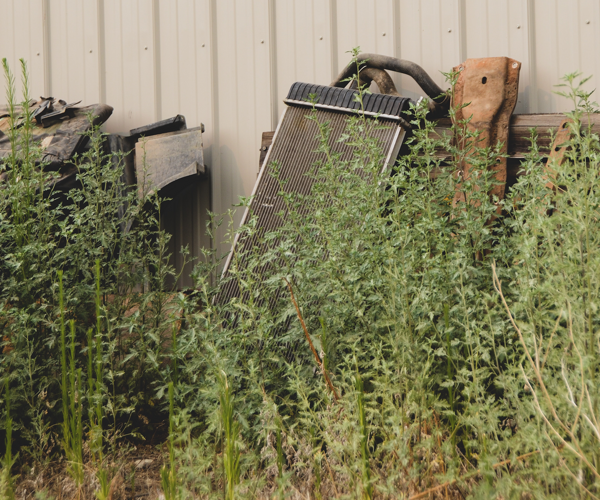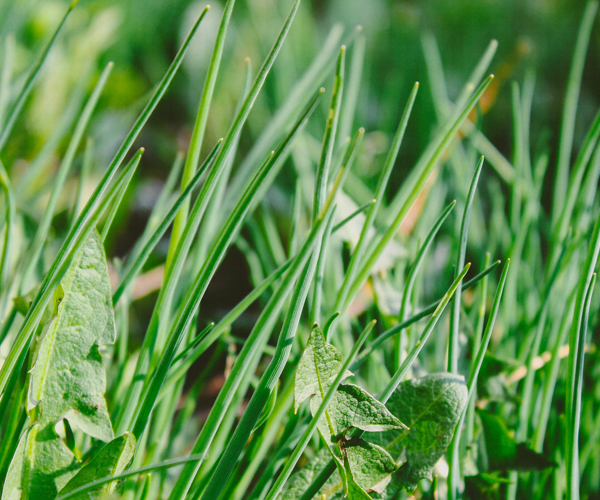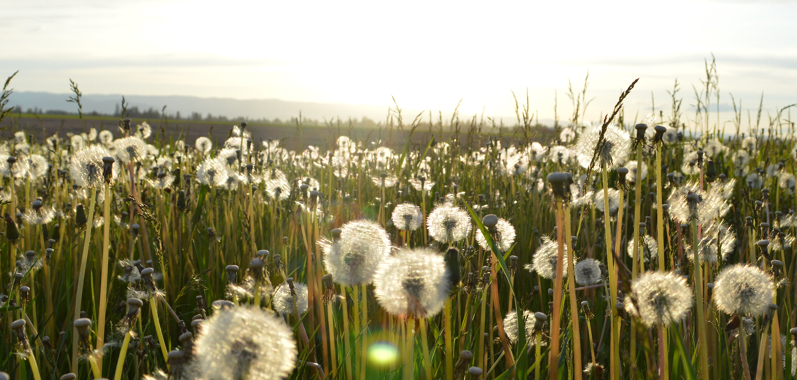Why Virginian Weeds Can Hurt Your Lawn
The warmer the season starts to get, the more likely you are to see people picking weeds out of their gardens. Often the weeds seem to grow before the grass does in spring! We’re all used to chickweed, dandelions, ragweed, bittercress, and other Virginia weeds. Most people view this as an inconvenience that comes with the season, like thunderstorms or humid days. However, they have more in common with mosquitos since there’s a hidden danger weeds that can pose to your lawn – and yourself.

The Problems With Weeds
While nobody likes weeds, it could seem not worth it to fight them across your lawn. While it’s hard to clear your lawn or garden of weeds, it’s important for the health of your lawn and all of the people who interact with it. Because of how far weeds spread, it’s easy to just let them sprout around the yard, but it could leave you with a bigger mess than you’d think. There are multiple ways that weeds can make your summer a nightmare.
They Compete With Your Lawn For Nutrients
Weeds in your lawn form by getting their seeds into free soil, which with water allows them to grow roots, leaves, and even flowers. Weeds have adapted to survive in a very small amount of soil and thrive across the space grass leaves on your lawn. However, this results in bare patches and yellowing grass as the weeds’ roots spread. Roots need space so they can absorb water for the plant as well as nutrients in the soil like nitrogen, phosphorus, and potassium.
One small weed might not seem like the culprit for thinning grass at first, but there’s more going on beneath the surface. Weeds can have longer root systems than new grass, with dandelions having roots averaging 6-18 inches long and being able to get up to 10 feet long. Especially with new seedlings or newer lawns, the grass roots may only be a couple of inches long. This results in dandelions taking in a lot of the nutrients that your lawn needs. Not only that, but because of how quickly weeds can spread and in so little space, you’ll start to see them join up in clusters. These groups of long, intertwined roots can suck up all of the minerals your grass needs, resulting in your lawn starting to wither.
Their Roots Choke Out Your Flowers And Hedges
Beyond absorbing all of the nutrients, the roots of weeds pose a problem to your other plants. When you plant flowers and vegetables, the seed packets will often talk about the correct amount of spacing. This is because roots not only compete with each other for nutrients but also need space to spread out to keep the plant healthy and growing. Weeds can ruin this balance by taking up all the space you left for your flowers, with even more crowding going on beneath the surface.
Beyond roots, they can also compete with leaves. It’s common in the area to see a bush with an odd trail or patch of weeds peeking through. However, when weeds grow in the space between your shrubs, they also compete with the leaves of the shrub for sunlight and carbon dioxide. Your shrubs, plants, and flowers can be hurt just by weeds taking up space.
Weeds Can Be Hazardous To Your Health
Weeds common to Alexandria and the surrounding Virginia area spread quickly and stick their roots deep into their lawn. However, they could also pose a health risk to you, your neighbors, and any other visitors to your lawn. According to the CDC, in 2021 19.2 million people in America were diagnosed with hay fever, respiratory allergies caused by pollen. This pollen is generated by weeds such as dandelions, ryegrass, and especially ragweed. With how quickly these weeds can cover your lawn, you could find yourself suffering from allergies and illness as a result.
That’s without considering poisonous plants in the northern Virginia area. Often the top listed noxious weed in Virginia is giant hogweed, a huge weed that creeps over your landscape. Spiky and hurtful to the touch, it’s hard to combat with your bare hands like tamer weeds. Poison hemlock has leaves that look like wild parsley and flowers that look like Queen Anne’s lace, but the juice of the plant causes skin irritation and it is toxic to ingest. Several weeds can be harmful to try to remove, and their spread could be a danger to anyone in your yard.

Ways To Control Virginian Weeds
So weeds can hurt your lawn, garden, and even yourself. How do you get rid of them? It can be hard to remove weeds when they have adapted to spread their seeds into every corner of your lawn. There are several different solutions for your lawn that can make the process of controlling weeds less daunting.
The Classic Approach: Pull Them Out
Putting gloves on and kneeling on your gardening pad can be a good solution to remove common weeds. The lack of herbicides benefits the environment and is a better solution for the pets that spend more time in the yard than we do. The important thing to remember when pulling weeds by hand is to remove the entire root. Even small chunks of roots left in the soil can allow the weed to regrow. Removing weeds by hand is time-consuming, but it can be the easiest solution for new weeds with short roots that haven’t yet started producing seeds.
Herbicide Treatment Saves You Time
For noxious weeds or ones that have grown beyond pulling up, herbicide is a solution that quickly works to remove dangerous weeds. Weed killers can be bought at any home and garden store or applied by a professional service. It’s important to carefully read the directions when applying herbicide yourself, in order to minimize the environmental impact. If you are not careful when applying, it could also harm the health of the grass and plants you want to keep healthy.
There are several different varieties of herbicide you could apply, so be sure to choose your brand carefully. Two main varieties are selective herbicides, which only kill the plants they come into contact with, and non-selective herbicides which can be transferred through soil or water. The latter could hurt patches of your lawn if not applied properly. There are also varieties of pre-emergent weed killers. Pre-emergent herbicide helps you get a jump start at removing lawn invaders like crabgrass before they start growing. A common ingredient to look for in weed killer is glyphosate, the main herbicide employed by lawn care and landscaping companies. Personal use could cause irritation of the lungs, throat, eyes, and skin, but post-emergent weed killers are most effective with at least 42% glyphosate.
Care For The Plants You Love
The best way to control weeds is to prevent them with your lawn care. A lawn with thick, lush grass and roots will provide less space and soil for weeds to creep into. It’s harder for weeds to reach your lawn and create problems when you mow your lawn, apply fertilizer, and perform other lawn care methods. For free-standing soil in your gardens and landscapes, mulch is a good way to keep weed seeds from receiving sunlight. When they can’t grow and spread, it keeps your flowers and shrubs safe.
Remove Your Weeds and Care For Your Alexandria, VA Lawn
We at Blue Ridge Lawn Care Services wish you luck with removing weeds from your lawn. Hopefully, this shows you the issues that weeds could pose that make them worth removing. Removing weeds in the warm months can be an uphill battle, but it is worth it for a healthier lawn and a happier summer. If you have any questions about weed control or measures like mulch installation and landscaping to prevent weeds near you around Alexandria, VA, contact us and see if we could help!

